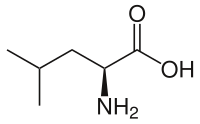
Photo from wikipedia
Background/objectivesTo investigate adherence to the Mediterranean diet (MD) and the relationship between MD and lifestyle factors in a representative sample of Greek school children.Subjects/methodsThe data derived from 232,401 (51% boys)… Click to show full abstract
Background/objectivesTo investigate adherence to the Mediterranean diet (MD) and the relationship between MD and lifestyle factors in a representative sample of Greek school children.Subjects/methodsThe data derived from 232,401 (51% boys) children aged 8 to 17 years old who participated in a health survey (2015). Physical fitness (PF) and anthropometric estimations were obtained by trained investigators. Physical activity (PA) status, sedentary activities and sleeping hours were assessed through self-completed questionnaires. Mediterranean diet was evaluated via KIDMED test.ResultsForty percent of participants presented an optimal adherence to MD (≥8), while one to ten incorporated a low adherence to MD (≤3), in both genders. Participants with optimal adherence to MD presented a more favourable status in anthropometric and lifestyle characteristics. Adjusting for several potential confounders, increased screen time (<2 h/d) augmented odds of low adherence by 135% (95% CI: 2.216–2.491) and 150% (95% CI: 2.346–2.687), in boys and girls, respectively. For each 1-year enlarge in the age of children the odds of low adherence to MD enlarged by almost 11% (95%CI: 1.101–1.138) in both genders, while, boys had almost 6% increased probabilities to the low adherence (95%CI: 1.039, 1.102) than girls. Furthermore, insufficient sleeping hours (>2 h/d) and inadequate PA status were connected to higher odds of low adherence to MD.ConclusionsSupport a modest adherence to the MD and an enhancement considered necessary to adjust dietary intake to current guidelines. However, screen time presented a strong association with low adherence to MD.
Journal Title: European Journal of Clinical Nutrition
Year Published: 2018
Link to full text (if available)
Share on Social Media: Sign Up to like & get
recommendations!